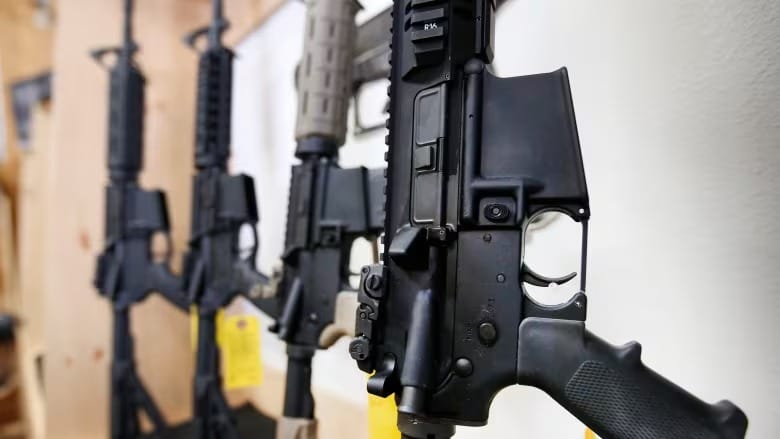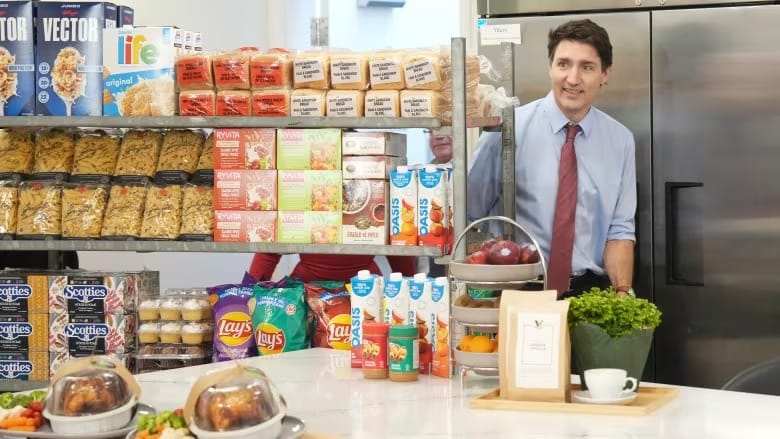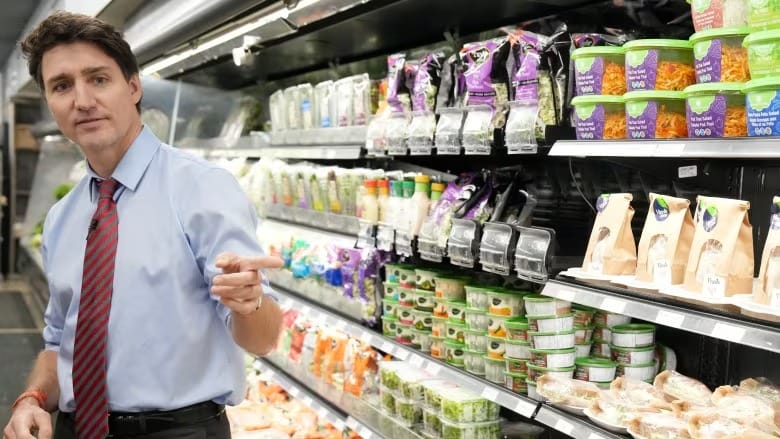Gun control group calls Trudeau government's buyback program a 'waste' of money
'We're not reducing the risk level,' says Nathalie Provost of PolyRemembers

The Trudeau government is losing a crucial supporter in its effort to remove hundreds of thousands of military-style firearms from circulation, putting one of its top public safety initiatives at risk.
The federal government’s firearm buyback and destruction plan, introduced in 2020 and targeting banned weapons like AR-15s, has faced fierce opposition from firearms industry groups and the Conservative Party of Canada. Now, it is facing criticism from PolyRemembers, a gun-control advocacy group, which is threatening to withdraw its backing unless Ottawa expands the program to include military-style firearms that remain legal.
The group warns that gun owners could use the compensation from the buyback program to purchase other firearms with similar characteristics and functionality to the banned models.
“It’s a waste of Canadians’ money. We aren’t reducing the risk level; we’re just replacing the makes and models,” said Nathalie Provost, spokesperson for PolyRemembers.
Although the cost of the program has not been disclosed, it is expected to reach hundreds of millions of dollars.
Provost, who survived being shot during the Polytechnique massacre nearly 35 years ago, criticized the current program as “a sieve,” stating that it lacks effectiveness. “If our safety is important to politicians, we must carry out this buyback program. But it has to be done efficiently, not just for appearances,” she said.

PolyRemembers has pointed out that other semi-automatic, military-style firearms, such as the Crypto by Crusader Arms and the Kodiak Defence WK180-C, remain legal in Canada.
The criticism comes as Ottawa gears up to begin recovering banned firearms from retailers, who have been required to hold them in inventory since 2020. The second phase of the program, targeting firearms currently owned by individuals, is set to begin in spring 2025.
The buyback plan includes 1,500 firearm models and components, and much of the recovery process will be overseen by the RCMP, with help from provincial police forces in Ontario and Quebec. Canada Post, however, refused to participate earlier this year due to safety concerns.
Despite PolyRemembers’ concerns, the federal government has indicated it will not alter its plans. “We have no intention of modifying the list at this point. Our focus is on successfully launching the program, which is the most effective way to enhance public safety and achieve our objectives,” said Jean-Sébastien Comeau, spokesperson for Public Safety Minister Dominic LeBlanc.
One expert questioned the program’s viability, particularly now that the Liberal government no longer has the formal support of the NDP. “The outlook for implementing such a complex program, especially one relying on provincial governments’ cooperation, is bleak,” said Frédéric Boily, a political science professor at the University of Alberta.

The firearms industry and PolyRemembers, long adversaries over gun control, agree on the flaws in the current buyback plan. Wes Winkel, president of the Canadian Sporting Arms and Ammunition Association, argued that many models similar to the banned firearms are still available for purchase.
“Taxpayers should be outraged. You’re taking taxpayer money to destroy perfectly good firearms, and people will just buy similar models with different branding,” said Winkel, who also runs Ellwood Epps Sporting Goods in Orillia, Ontario.
Winkel criticized the policy as arbitrary, likening it to reducing speeding by banning Corvettes while leaving other fast cars like Mustangs and Ferraris on the road. “It makes no sense whatsoever,” he said.
Tony Bernardo, president of the Canadian Shooting Sports Federation, argued that the government banned firearms based on appearance rather than functionality, accusing groups like PolyRemembers of focusing on aesthetics. “If you ban all the AR-15s, what have you really achieved? Nothing,” he said. “It’s a dumb idea, but it sells votes.”
The firearms lobby believes the program will ultimately fail, with strong opposition from gun owners and the governments of Saskatchewan and Alberta. Many in the firearms community are looking to a possible Conservative victory in the next federal election, as Conservative leader Pierre Poilievre has pledged to reverse the "gun grab."
In early 2021, the families of Polytechnique victims told Prime Minister Justin Trudeau that he would not be welcome at that year’s commemorative events because the buyback was still voluntary at the time. In response, the Liberals made the program mandatory.
Provost has now warned that the government’s participation in the 35th anniversary of the Polytechnique massacre could once again be in jeopardy, depending on whether it meets its commitments. The final decision will be made by the broader community of victims' families and survivors.
“How can we commemorate with the prime minister and Minister LeBlanc if they haven’t fulfilled their promises?” she said.
Provost emphasized that the fight continues on behalf of all those affected by the Polytechnique tragedy, demanding an end to assault-style firearms in Canada. “This isn’t the time for ideas or promises. It’s time for action and decisions,” she said.





